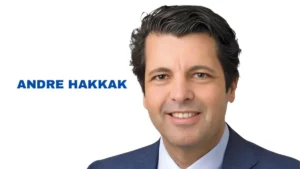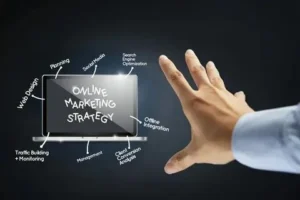Model United Nations (MUN) conferences have become a popular platform for students to delve into the complexities of international relations, diplomacy, and global issues. Among the myriad of MUN organizations, the Korean American Coalition Model United Nations (KACMUN) distinguishes itself through its unique emphasis on cultural exchange and leadership development. This article explores the origins, structure, and impact of KACMUN, shedding light on why it is a transformative experience for young leaders.
Origins and Mission of KACMUN
Founded in the early 2000s, KACMUN was established with the mission of fostering a deeper understanding of global issues among Korean American youth. The initiative began as a small project within the Korean American community, but its innovative approach to education and international relations quickly attracted attention and participants. The organization’s core mission is to educate students about the intricacies of international relations, diplomacy, and the workings of the United Nations through immersive simulations and debates.
KACMUN’s founders recognized the need for a platform that not only educated young people about global issues but also provided them with the skills and confidence to become future leaders. By focusing on Korean American youth, KACMUN also aimed to bridge cultural gaps and promote a greater understanding of Korean heritage and its place in the global context.
Educational Objectives and Approach
At the heart of KACMUN’s approach is a commitment to experiential learning. Participants engage in rigorous research and debate, gaining a deep understanding of global issues and learning to think critically and propose viable solutions. The conference’s educational objectives are multi-faceted, focusing on the development of several key skills:
- Research and Analytical Skills: Delegates are required to thoroughly research their assigned countries and the topics to be debated. This process enhances their ability to gather and analyze information from diverse sources.
- Public Speaking and Communication: KACMUN provides a platform for students to practice and refine their public speaking skills. Effective communication is essential for presenting arguments and persuading others during debates.
- Diplomacy and Negotiation: Simulating the diplomatic processes of the United Nations, participants learn the art of negotiation and compromise, essential skills for resolving conflicts and reaching consensus.
- Critical Thinking and Problem-Solving: Delegates are encouraged to think critically about complex issues and develop innovative solutions, fostering a mindset geared towards problem-solving.
- Cultural Awareness and Sensitivity: Through interaction with peers from diverse backgrounds, participants gain a broader perspective on cultural differences and the importance of inclusivity and respect in international relations.
Structure and Organization
KACMUN features various committees that simulate different bodies of the United Nations, such as the General Assembly, Security Council, and specialized agencies. Each committee has specific roles, including chairs, delegates, and secretariat members, ensuring a well-organized conference. The structure of these committees is designed to mirror the actual workings of the United Nations, providing a realistic and immersive experience for participants.
- General Assembly: The General Assembly is the main deliberative body, where all member states are represented. Topics discussed here are broad and encompass major international issues such as peace and security, human rights, and sustainable development.
- Security Council: The Security Council focuses on maintaining international peace and security. Debates in this committee often revolve around conflict resolution, peacekeeping operations, and responses to international crises.
- Specialized Agencies: These include bodies such as the World Health Organization (WHO), United Nations Educational, Scientific and Cultural Organization (UNESCO), and United Nations Environment Programme (UNEP). Each agency addresses specific issues within their mandate, allowing for in-depth discussions on specialized topics.
- Crisis Committees: These dynamic and fast-paced committees deal with simulated crises, requiring delegates to think on their feet and respond to rapidly changing situations. This format enhances participants’ ability to handle pressure and make quick, informed decisions.
Unique Features of KACMUN
Several features set KACMUN apart from other MUN conferences, contributing to its reputation as a premier platform for young leaders.
- Cultural Exchange: KACMUN places a strong emphasis on cultural exchange, promoting an understanding of Korean heritage and its global context. This focus on cultural identity and awareness enriches the participants’ experience, fostering a sense of pride and connection to their heritage.
- Leadership Development: Beyond simulating the United Nations, KACMUN is committed to developing leadership skills in its participants. Workshops and training sessions are integrated into the conference, covering topics such as leadership styles, effective communication, and team-building.
- Community Engagement: KACMUN encourages participants to engage with their local communities, applying the skills and knowledge gained at the conference to real-world issues. This approach bridges the gap between theoretical learning and practical application, emphasizing the importance of civic responsibility and community involvement.
- Mentorship Programs: Experienced delegates and alumni often take on mentorship roles, guiding new participants and providing support throughout the conference. This mentorship fosters a supportive environment and enhances the learning experience.
The Impact of KACMUN
The impact of KACMUN extends far beyond the confines of the conference itself. Participants often describe the experience as transformative, citing numerous benefits that have a lasting influence on their personal and professional lives.
- Enhanced Academic Performance: The skills developed through participation in KACMUN, such as research, critical thinking, and public speaking, often translate into improved academic performance. Students become more confident in their abilities and more engaged in their studies.
- Career Development: The leadership and diplomatic skills honed at KACMUN are highly valued in various career fields, including international relations, law, business, and public service. Many alumni attribute their success in these fields to the foundational experiences gained at KACMUN.
- Global Perspective: By engaging with global issues and interacting with peers from diverse backgrounds, participants develop a broader perspective on the world. This global awareness is crucial in an increasingly interconnected world and prepares students for roles on the international stage.
- Lifelong Connections: The friendships and professional networks formed at KACMUN often endure long after the conference ends. These connections provide valuable support and opportunities for collaboration in future endeavors.
- Empowerment and Confidence: Perhaps most importantly, KACMUN empowers young people, instilling a sense of confidence and agency. Participants leave the conference with a belief in their ability to make a difference in the world, equipped with the skills and knowledge to do so.
Success Stories and Alumni Achievements
KACMUN’s impact is best illustrated through the success stories of its alumni. Many former participants have gone on to achieve remarkable success in their academic and professional careers, attributing their achievements to the skills and experiences gained at KACMUN.
- Academic Achievements: Numerous KACMUN alumni have pursued higher education at prestigious universities, often with a focus on international relations, political science, and related fields. Their experiences at KACMUN have provided a strong foundation for their academic pursuits.
- Professional Success: KACMUN alumni have excelled in various professional fields, including diplomacy, law, business, and public service. Their ability to navigate complex issues, communicate effectively, and lead with confidence has been instrumental in their success.
- Community Leadership: Many alumni continue to engage with their communities, applying the skills and values learned at KACMUN to drive positive change. Whether through local initiatives, advocacy, or public service, they remain committed to making a difference.
Future Directions and Opportunities
As KACMUN continues to evolve, there are several opportunities and directions for growth that can enhance its impact and reach.
- Expansion of Cultural Programs: Building on its emphasis on cultural exchange, KACMUN can expand its cultural programs to include more diverse perspectives and experiences. This can foster greater inclusivity and provide participants with a richer understanding of global cultures.
- Enhanced Digital Engagement: Leveraging digital platforms can increase accessibility and engagement, allowing more students to participate in KACMUN’s programs. Virtual conferences, webinars, and online resources can complement the traditional in-person experience.
- Partnerships and Collaborations: Forming partnerships with other organizations, both within and outside the Korean American community, can provide additional resources and opportunities for participants. Collaborative initiatives can also amplify KACMUN’s impact on a broader scale.
- Alumni Network and Support: Strengthening the alumni network can create more opportunities for mentorship, collaboration, and professional development. An active and engaged alumni community can also contribute to the growth and sustainability of KACMUN.
- Innovative Educational Programs: Continuously innovating and updating the educational programs offered at KACMUN can ensure that they remain relevant and impactful. Incorporating emerging global issues and new pedagogical approaches can enhance the learning experience.
Conclusion
The KACMUN stands out as a beacon of cultural exchange and leadership development within the MUN community. Its commitment to fostering a deeper understanding of global issues, developing essential skills, and promoting cultural awareness makes it an invaluable experience for young leaders. As KACMUN continues to grow and evolve, its impact on participants and the broader community will undoubtedly continue to expand, shaping the next generation of leaders and changemakers.








